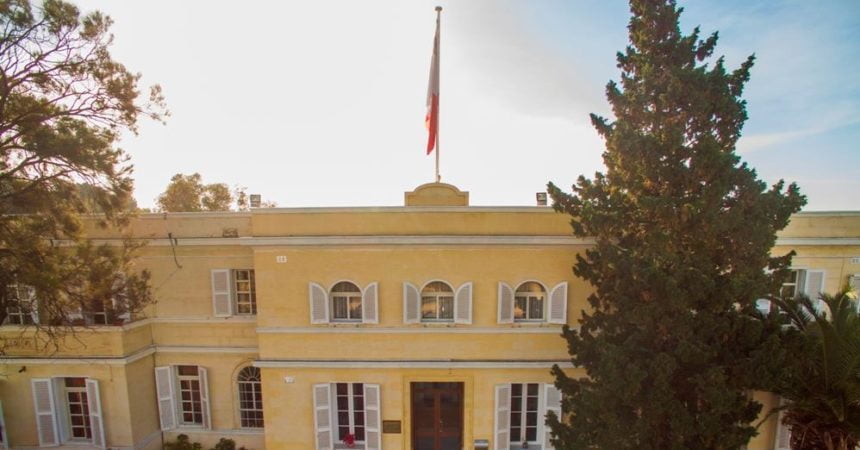Overspending, governance issues, questionable overtime payments and the complete disregard of public procurement regulations are the trends that continue to characterise the finances of several government entities.
In the foreword of its annual report for the year 2021, which was published in December, the National Audit Office (NAO) lists an inadequate audit trail, limited internal controls and a lack of ownership in project management among the main weaknesses it encountered in the public service.
Public procurement
One of the most severe breaches of procurement rules and blatant abuse of taxpayer’s funds was by then Transport Minister Ian Borg when he split a €420,000 bill from TEC into 20 direct orders worth almost €0.5 million to the same company to avoid issuing a tender. The direct orders were related to the launch of a proposal for a metro system in Malta.
The NAO discovered that negotiations with the supplier were handled directly by the minister and the Transport Malta chairman without the approval of either the finance minister or the agency’s procurement committee.
However, Transport Malta was far from the only public entity to breach procurement rules.
The NAO also found questionable contracts issued by direct order had been mismanaged by Esplora, the government’s interactive science centre in Kalkara.
The mismanagement included a lack of verification for specific contracts, particularly those dealing with cleaning, security, and landscaping services. In addition, several contracts had been renewed by direct order when competitive tenders were supposed to have been issued.
Similarly, the contract for the services of the executive secretary with the National Literacy Agency (NLA) was also continuously extended by 11 direct orders, dating as far back as May 2014 to the end of June 2022, totalling €169,905.
In another instance, the NLA split a direct order into five contracts not to exceed the threshold of €10,000, which would have required approval by the Ministry of Finance.
The Xemxija project, managed by the Foundation for Tourism Zone Development, ignored public procurement regulations entirely.
Overtime and allowances
Another issue that repeatedly arose while reviewing the public entities’ operations was how allowances and overtime payments were often dispensed with little to no control, such as in the case of the Gozo Ministry Strategy and Support Division which paid almost a million euros in overtime and allowances in 2021 for claims that were “vague” and “habitual”.
The NAO found that the reasons being given for the overtime at the division of nearly 800 workers, including those employed by the ministry in public cleansing and maintenance, were “generic, raising doubts on whether all overtime was justifiable.
It also found attendance sheets supporting overtime claims were completely “unreliable” and said it could not “comfortably conclude whether the sampled officers were accurately paid for the overtime that they claimed”.
Furthermore, the €815,000 paid out in allowances at the same Gozo division could not be verified because the NAO was refused the information, despite several reminders.
Meanwhile, the allowances at two cost centres within the Ministry for Foreign and European Affairs cost taxpayers €6 million in 2021. Allowances at the Head Office cost almost €2 million, and €4 million for the Permanent Representation in Brussels.
Lack of governance
The audit revealed lax oversight and procedures that were not followed at two cost centres within the Ministry for Foreign and European Affairs. These resulted in the overpayment of reimbursements, while reimbursements of education grants and medical expenses were not in line with the Conditions of Service.
Additionally, it also found that certified attendance records did not always accompany overtime pay; some claims were not formally approved by the Permanent Secretary, while the Director of Corporate Services signed other claims on behalf of the Permanent Secretary without delegation of authority.
The audit also found that while hundreds of thousands of euros were paid by taxpayers for cleaning services at Esplora by a private contractor, no one was ensuring the number of cleaners that were meant to have been on site on any given day showed up for duty.
“Testing revealed that the attendance reports for cleaning, extracted from the electronic attendance verification system, were not being verified for correctness and completeness,” the NAO audit found.
Overspending
Consequently, and unsurprisingly, the mismanagement of funds resulted in several entities overspending.
The NAO audit found that while expenses for the Metro exhibition inaugurated by Prime Minister Robert Abela were to be capped at €400,000, it ended up costing taxpayers over €550,000.
The National Literacy Agency’s budget allocation for 2021 was €2 million, with an additional €91,620 generated from the provision of training, memberships, sponsorships, and various programmes the agency provides to the public. Nevertheless, the total expenditure was €2,323,452, leaving a deficit of €231,832.
Esplora also ended up running at a deficit, despite an allocated government budget of €4.3 million in 2021, the audit found.
So too, did the Foundation for Tourism Zone Development. The Foundation reported a total income of €1,378,368, including the Central Government’s €1 million annual allocation. However, the total expenditure for 2021 totalled €2,051,881, resulting in a net deficit for the year of €673,513.
The NAO also found that the cost of ‘free’ school transport for students of church and private schools is costing taxpayers more than three times the initial estimate by the government when the scheme was introduced in 2018.
The detailed NAO report can be found here.













Under the Watch of ROBBER Abela.
This is theft of the future of our children.
Shame on you for your wrongs.